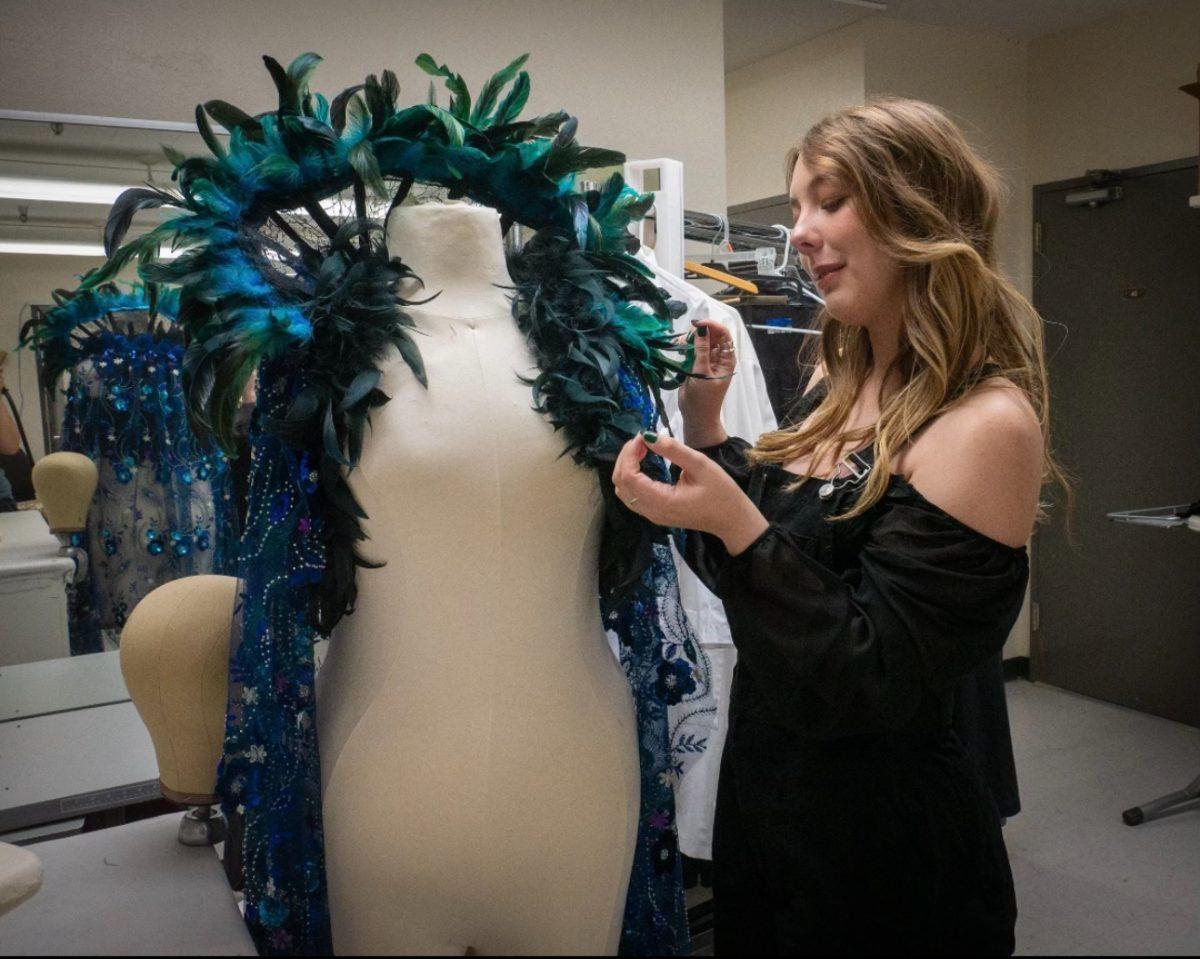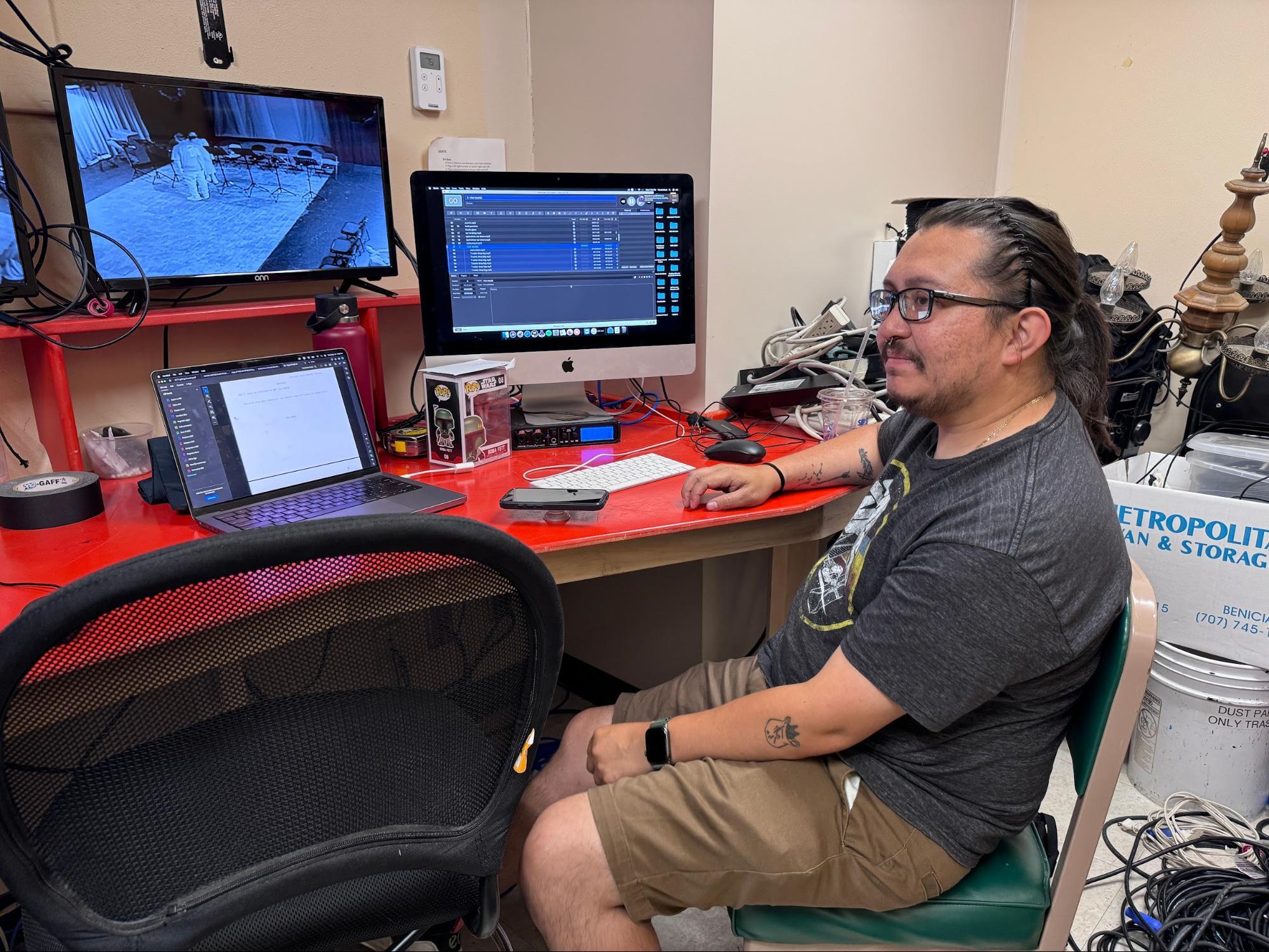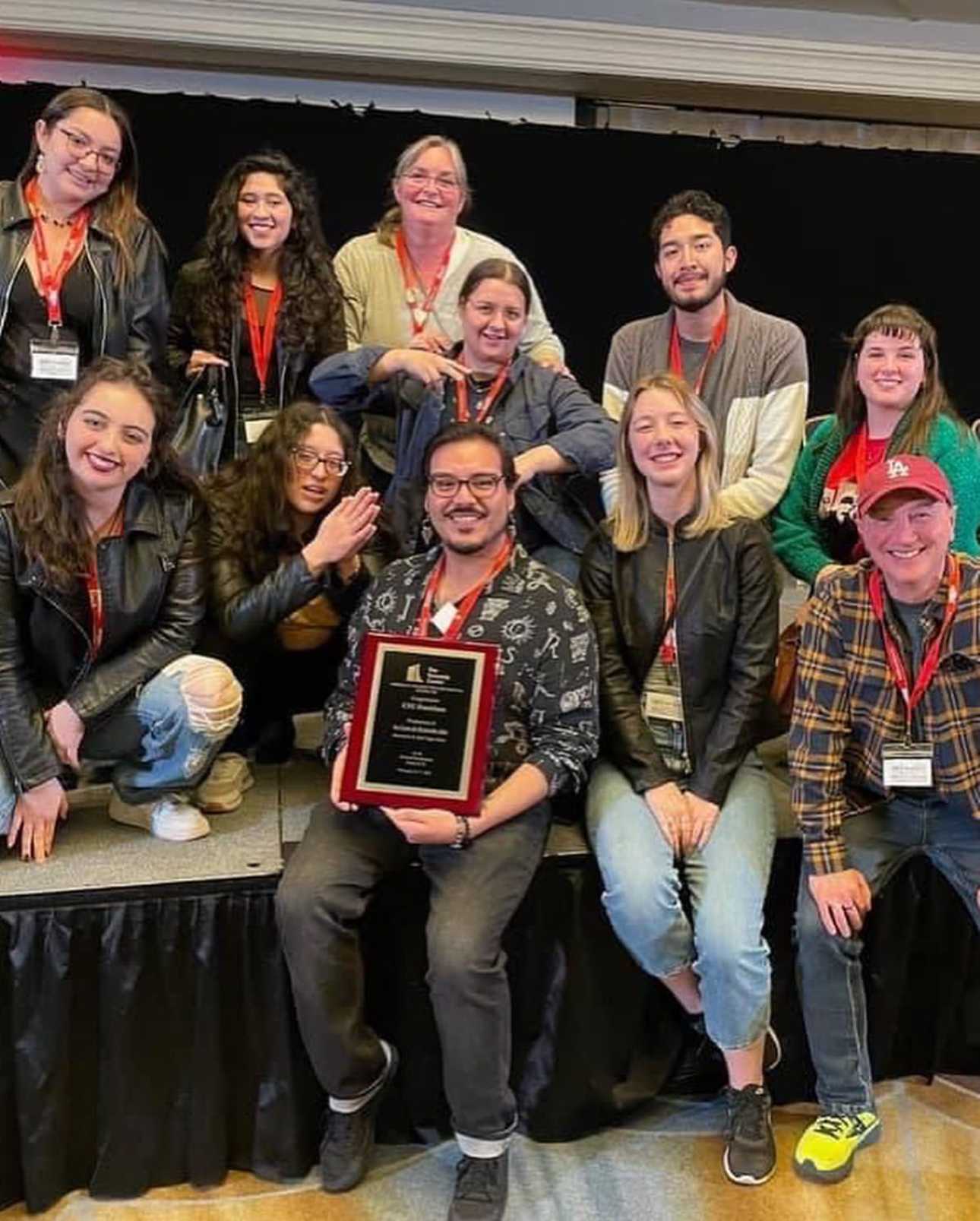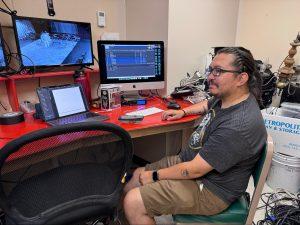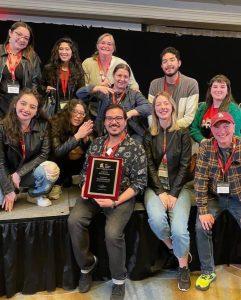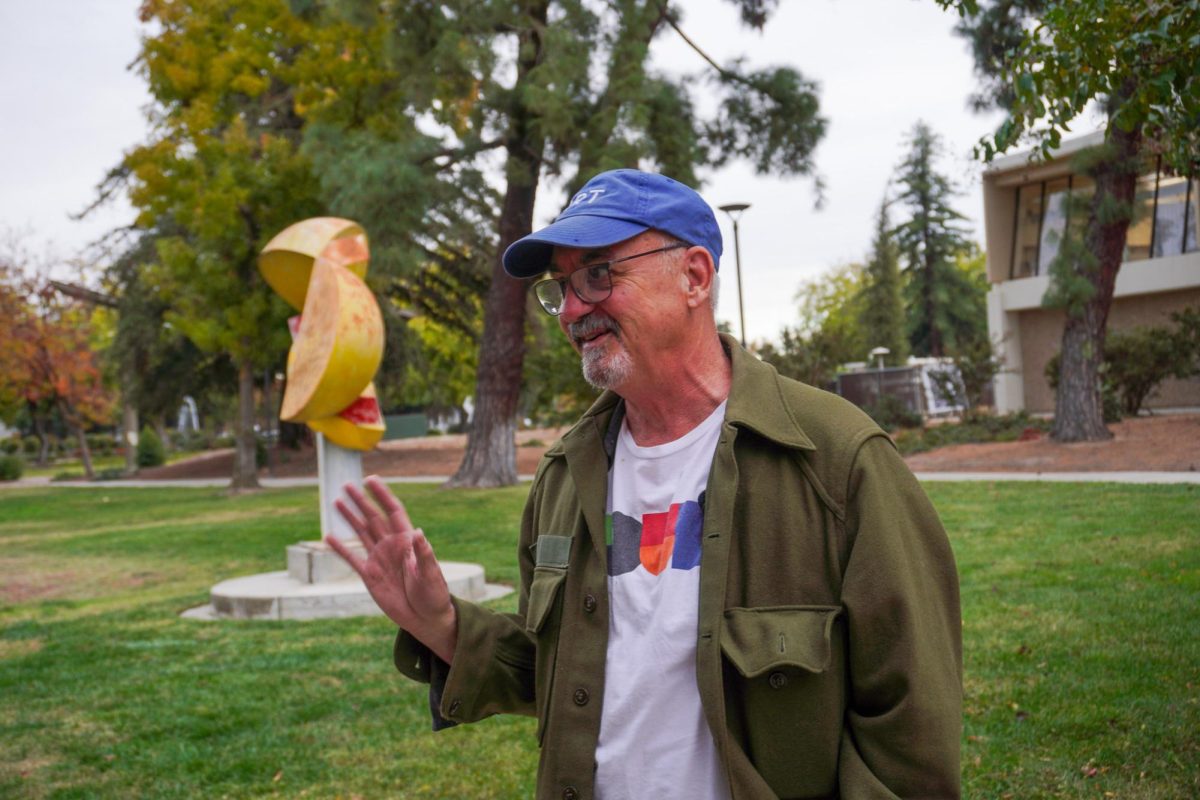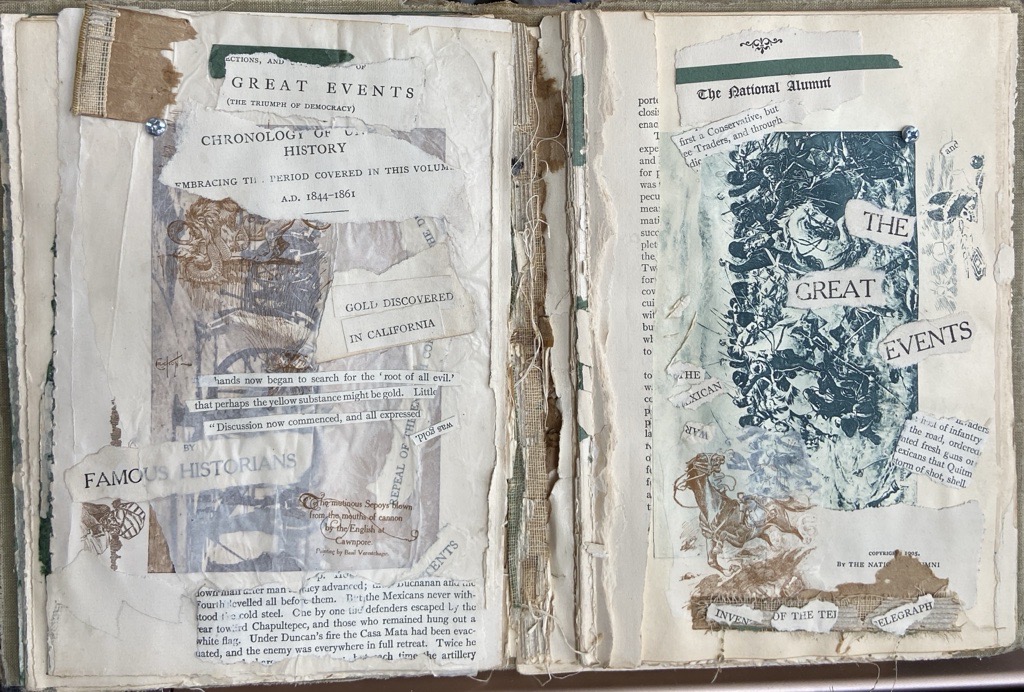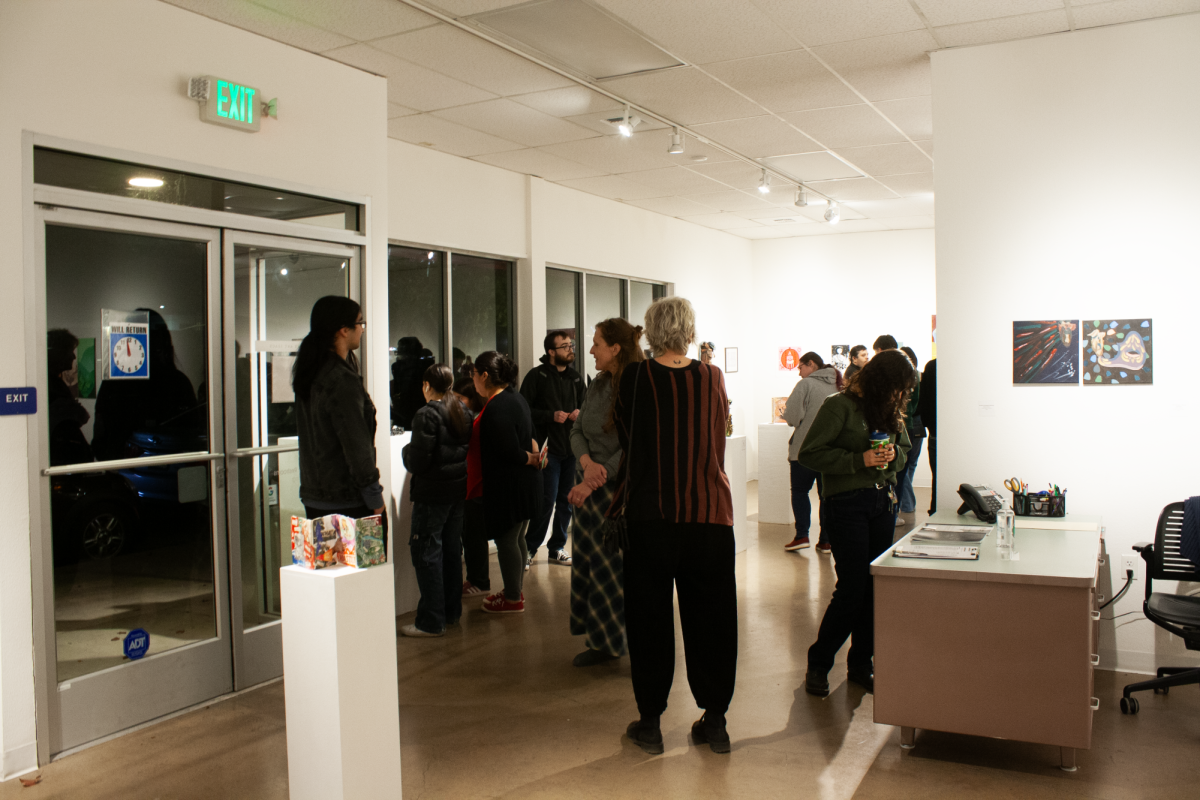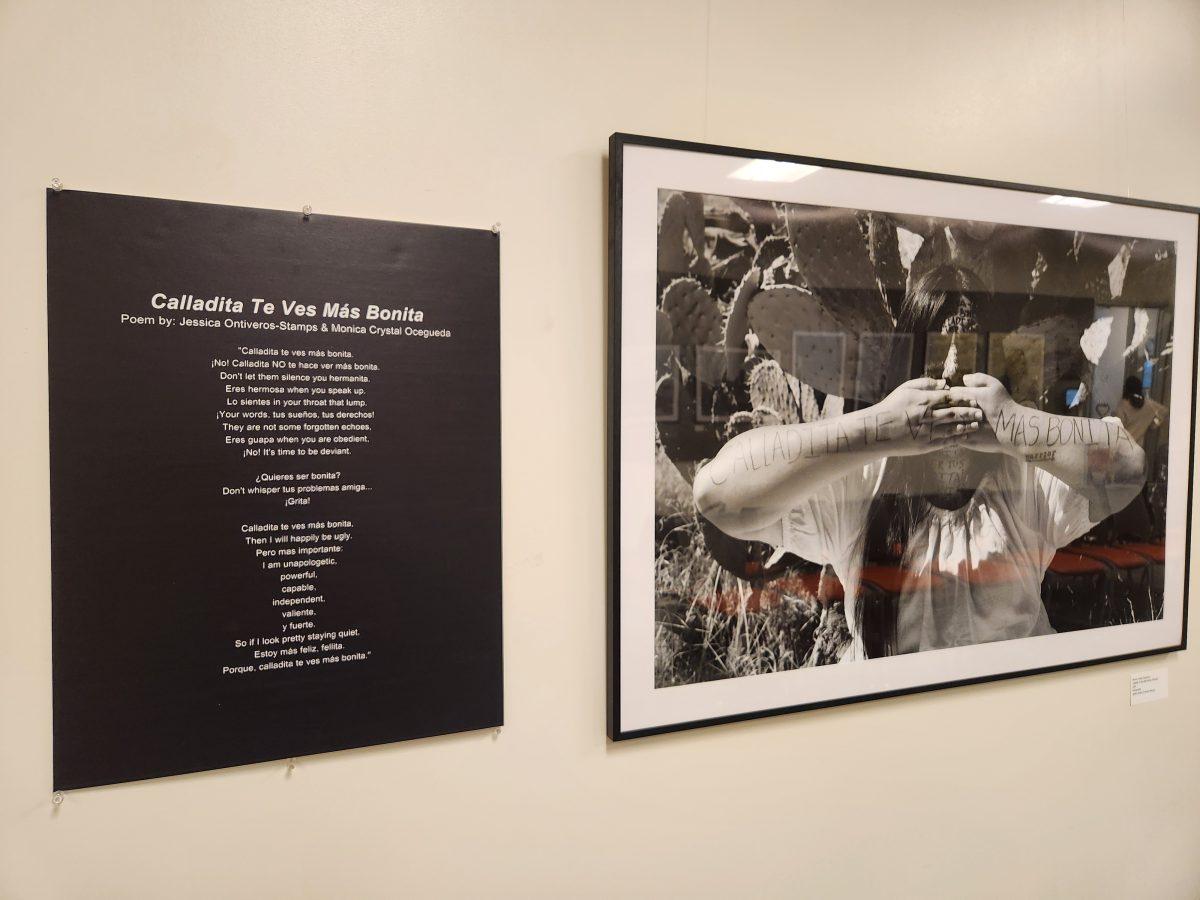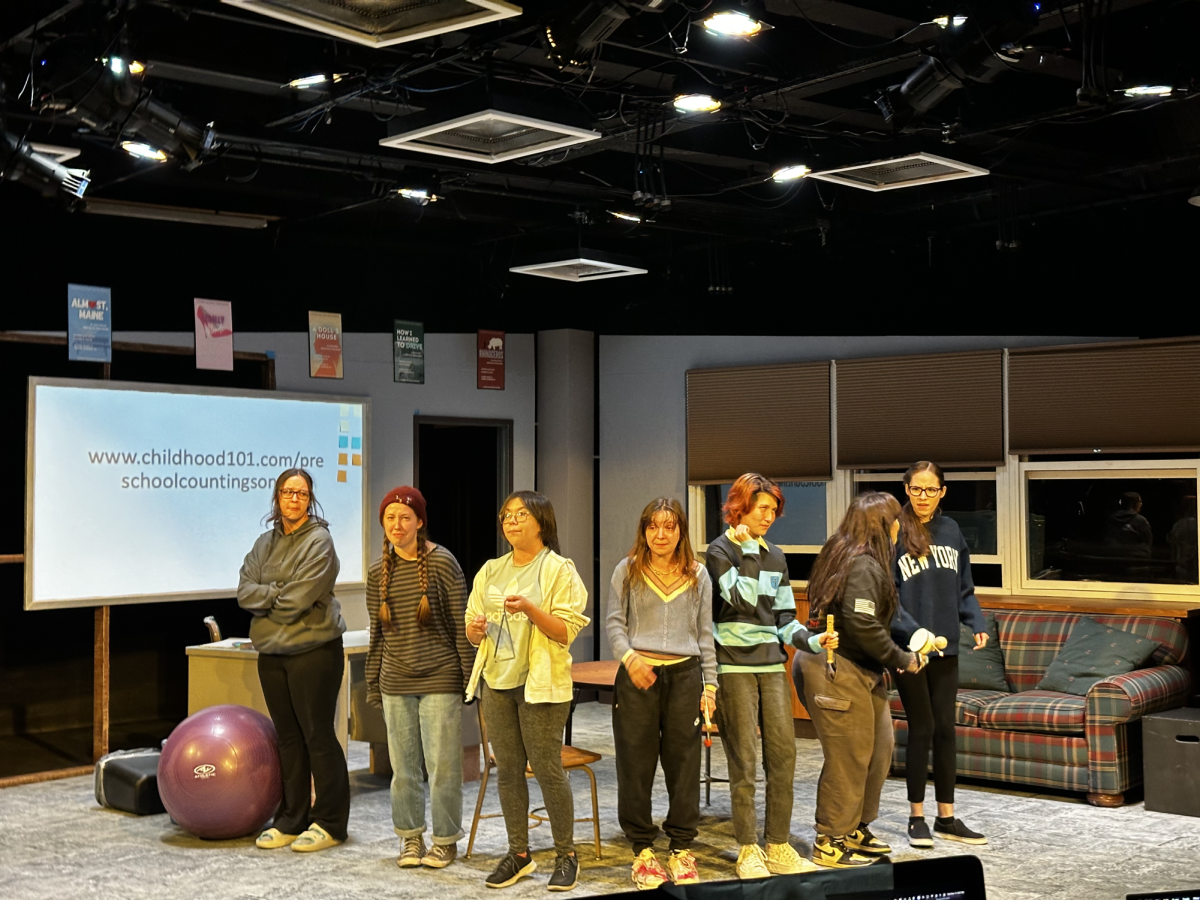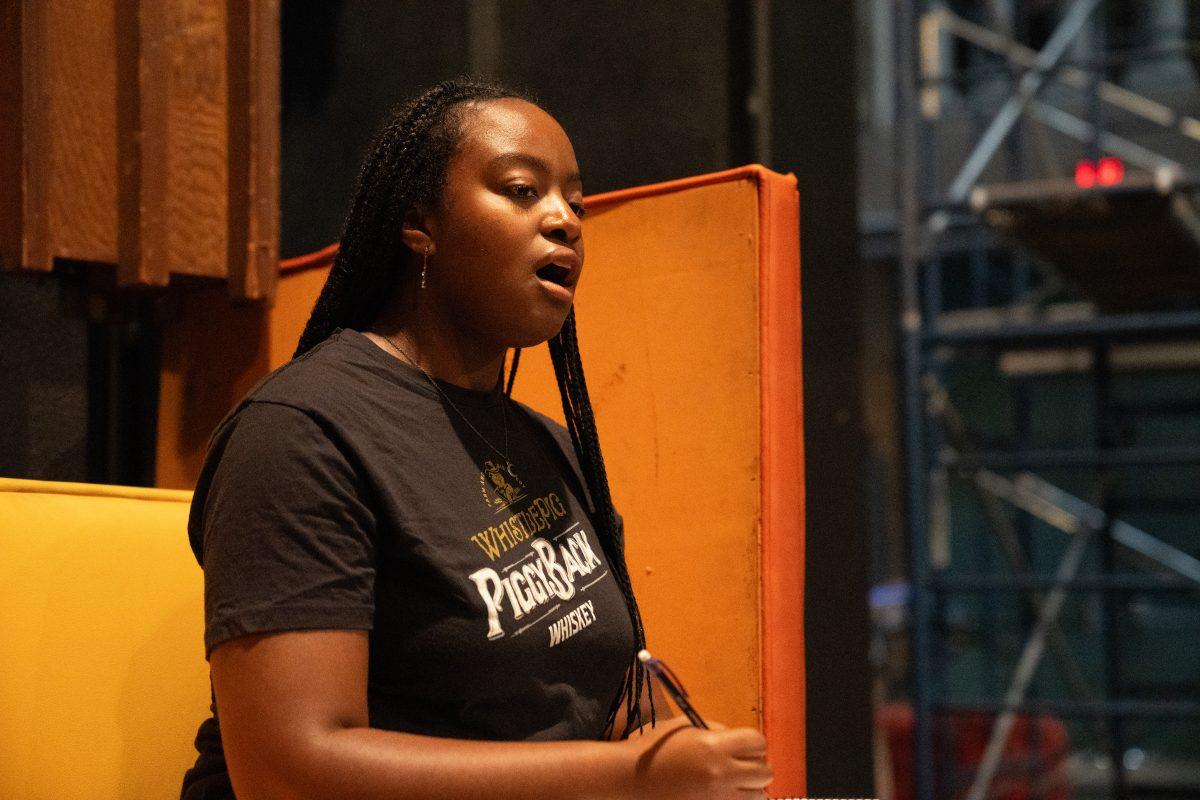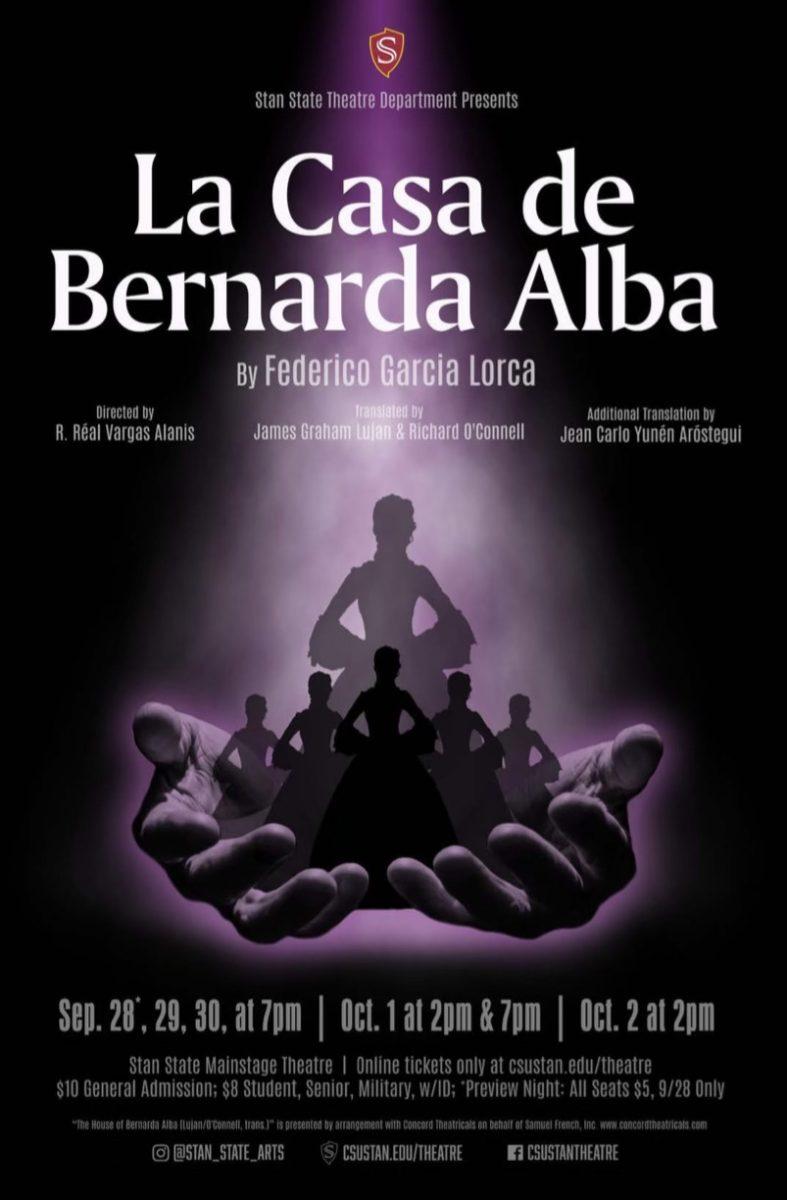A video interviewing Edgar Alamo, the Scenic Shop Supervisor of Stan State’s theater department, about what goes into the technical effects of a performance. (Signal Video/Jake Leahy)
In the world of performing arts, where actors take the stage and capture the audience’s attention, there’s another process at play behind the scenes. This is technical theater, a complex variety of skills and artistry that serves as the foundation of any production.
From lighting and sound design to costuming and props, technical theater professionals work tirelessly to create fun and immersive experiences for audiences across multitudes of stages.
Whether it’s the excitement of a grand Broadway show or the intimacy of a smaller local theater, like those at CSU Stanislaus, technical theater is what makes each performance come alive.
Technical theater can prepare students to work in a variety of areas in theater, many of which coincide with each other.
Theater major Clara den Dulk (Senior, Theater) has worn many hats in tech theater, including Assistant Stage Manager, Stage Manager, and Costume Designer.
Reflecting on her diverse experience, den Dulk said, “I am usually doing more than one job for each show, whether it’s working on costumes, managing schedules as a stage manager, or designing items to be used in the show.”
While this can be the case for many people, specializing in a specific area of theater is often an option as well.
Edgar Alamo, Scenic Shop Supervisor and Adjunct Faculty, specializes in lighting design, a pivotal aspect of any theatrical production.
With extreme attention to detail, Alamo plans and programs lighting cues, utilizing innovative tools like Vectorworks, a 3D modeling software that shows lighting without having to see it in person, to create immersive visual experiences.
“The magic of lighting is that it can completely transform a scene, set the mood, and guide the audience’s focus,” Alamo said.
One of the most intriguing aspects of tech theater is its collaborative nature, where different departments seamlessly intertwine to create a clear vision.
“Theater as a whole is a collaboration process. You will always be working with other departments to make a cohesive show that properly supports the story being told by the actors,” den Dulk said.
In college theater productions, tech theater serves as a training ground for aspiring technicians and designers, offering hands-on experience and mentorship opportunities.
“There is a job for anyone with any interest in tech theater. All you have to do is be willing to try,” said den Dulk.
Tech theater even opens the door to career pathways beyond the stage.
“A lot of my friends who have done theater go on to work in film lighting, entertainment lighting at theme parks, architectural lighting, and even gaming,” Alamo said.
The versatile skill set acquired through tech theater prepares students for diverse professions, from lighting designers and audiovisual specialists, to prop masters and scenic artists.
Tech theater offers students invaluable skills and experiences, preparing them for diverse and fulfilling careers by bringing productions to life through lighting, sound design, set construction, and stage management.
For those interested in learning more, the theater department is available to answer questions and provide guidance.

